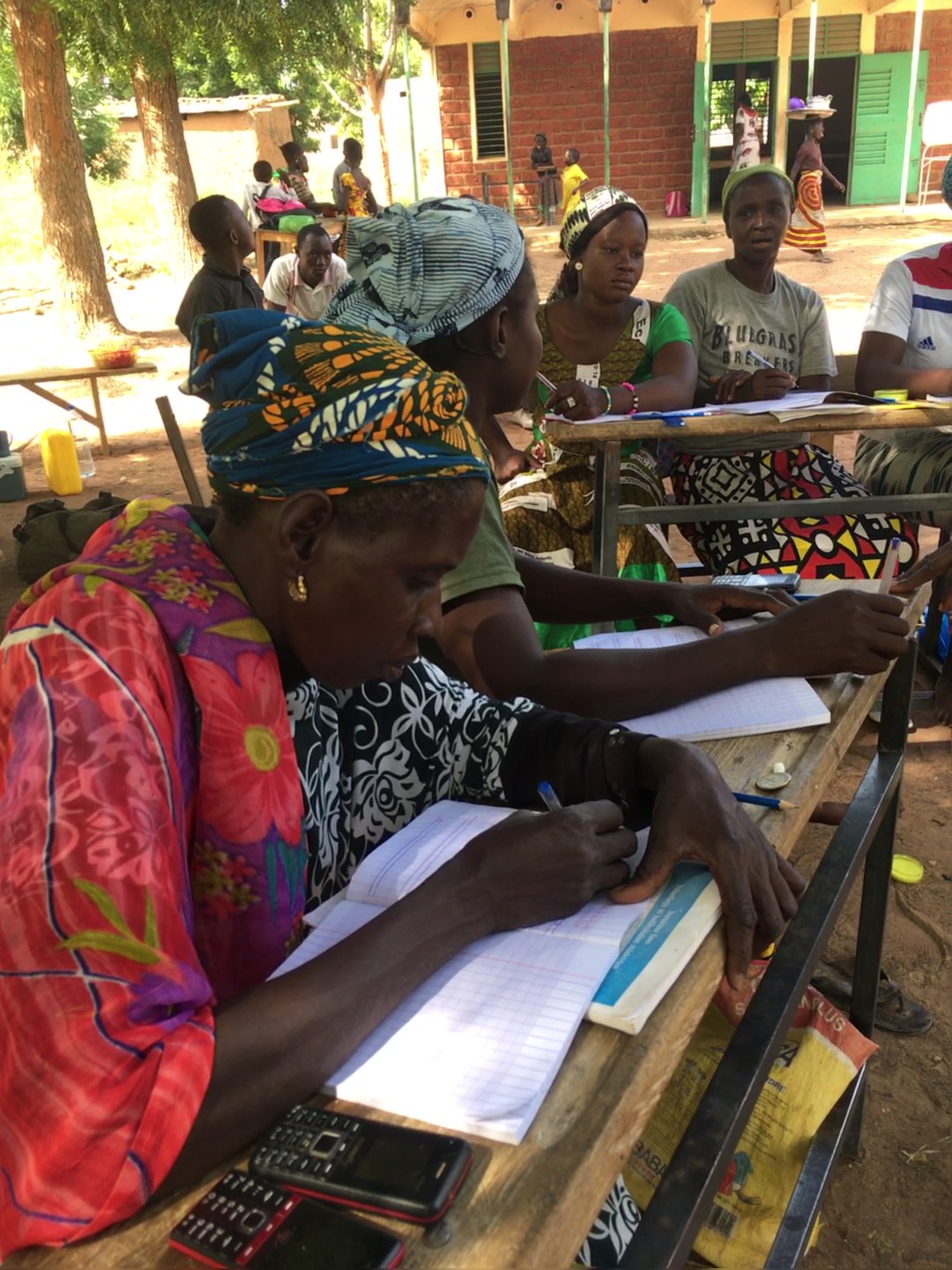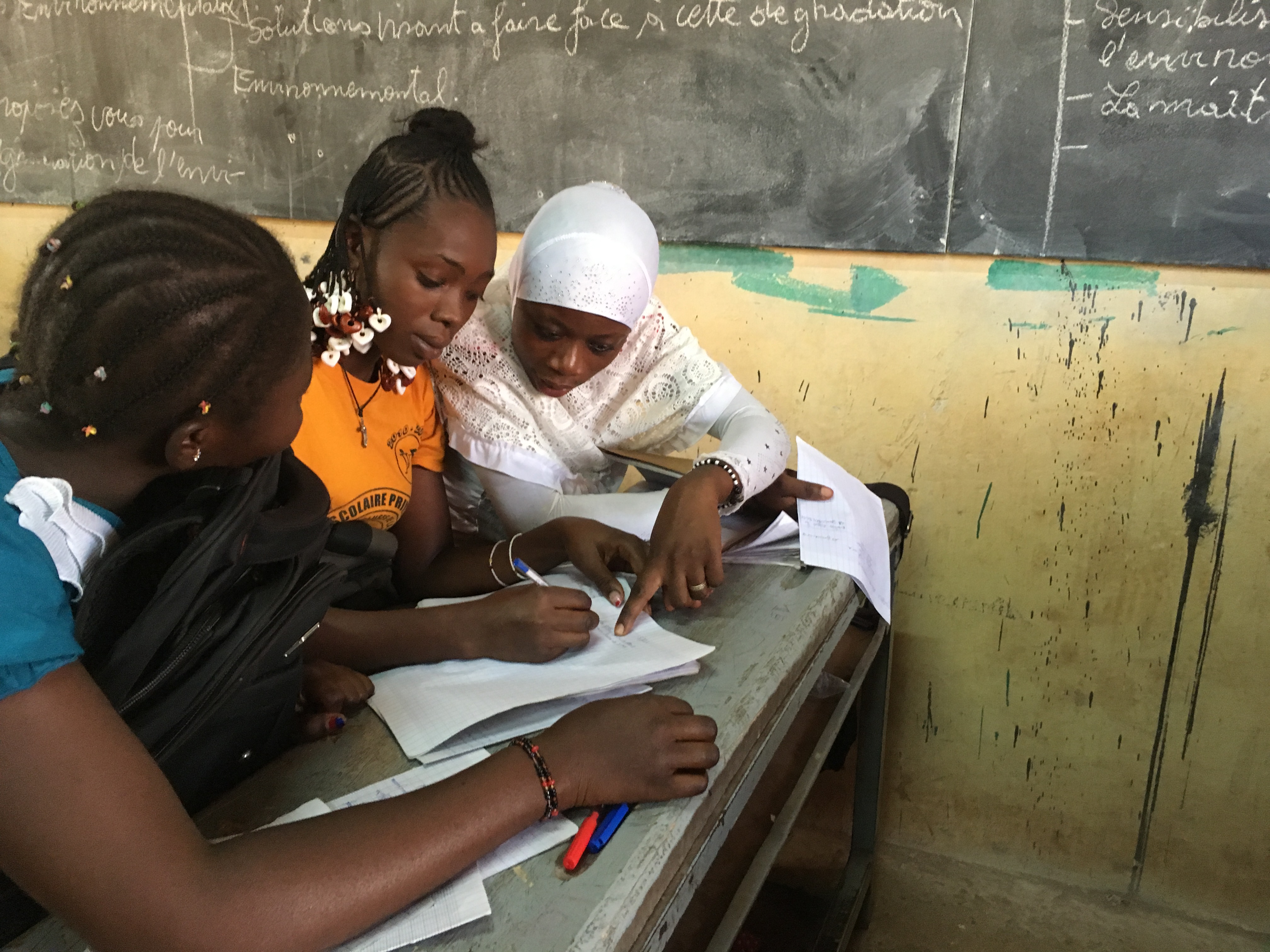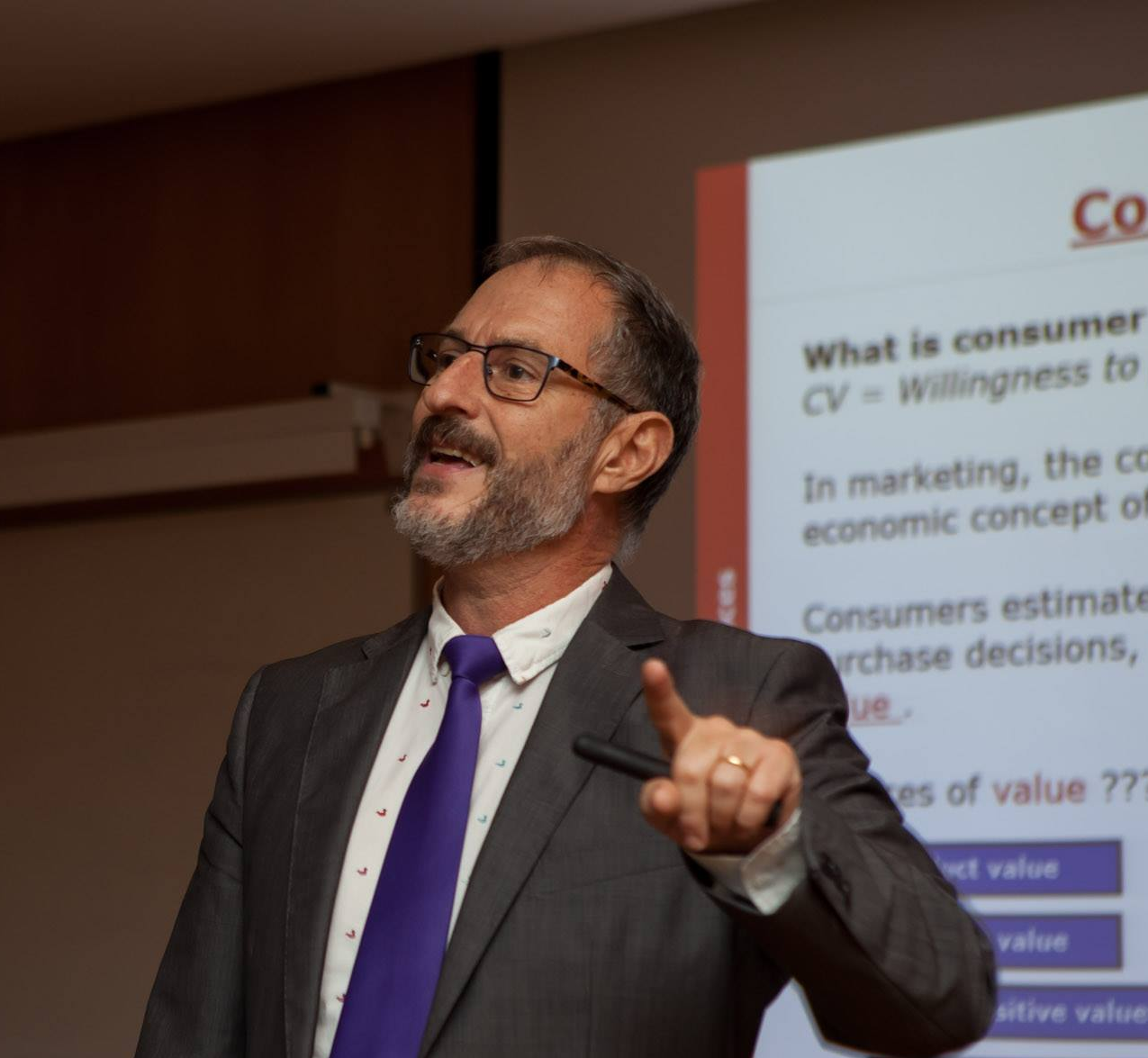Antonio P. Ladrón de Guevara: "It depends on the entire university community to make visible the success of grants for solidarity projects".
Antonio P. Ladrón de Guevara: "It depends on the entire university community to make visible the success of grants for solidarity projects".
Antonio P. Ladrón de Guevara: "It depends on the entire university community to make visible the success of grants for solidarity projects".
We interviewed Professor Antonio P. Ladrón de Guevara, who has been collaborating for years with the NGO CAT SYA and explains the projects subsidized by the UPF Solidarity call.
PhD in Economics, he is an associate professor in the Department of Economics and Business at UPF. Since 2015, he has participated in UPF Solidària's calls for financial aid, together with the NGO CAT SYA, with projects aimed at improving literacy and training for children and women in Burkina Faso.
Interview:
- With the 2021 call, UPF Solidaria has now collaborated with projects of the NGO CAT SYA for seven consecutive editions. Can you give us a brief summary and tell us how they have evolved?
I have been collaborating with the NGO CAT SYA for a long time. That's why, for years, I have made myself available to help them participate in UPF Solidaria's calls for proposals. Despite being a small NGO, CAT SYA's work is of vital importance to help women in the different villages and neighborhoods that the NGO has access to in Burkina Faso. I would highlight two projects that have been carried out thanks to the help of UPF Solidaria, and that currently continue to help many women in Burkina Faso to sustain and improve the standard of living of their families:
1. "Women, literacy and training in trades and accounting management". This project, implemented in 2014-2015, was carried out with a collective of 32 mothers from a public school in the Koko neighborhood, in the city of Bobo-Dioulasso, the second largest city in the country. In addition to literacy, they were trained to make peanut paste, soumbala (a fermented condiment typical of West African cuisine) and costume jewelry. Today, twelve of these women continue to produce and sell peanut paste and soumbala, which allows them to earn an income to support their families. It should be noted that during this academic year CAT SYA is buying peanut paste and soumbala for the school canteen, which was the last project carried out thanks to UPF Solidaria grants.

2. "Education, extracurricular courses for girls without resources, to prepare for the BEPC and BAC exams". Between 2015 and 2019, thanks to UPF Solidaria grants, several projects were implemented with high school girls from three public high schools in the city of Bobo-Dioulasso. Since the project began, 734 girls have participated, and the results have been excellent. The courses have allowed many girls to have access to the scientific baccalaureate, and they have even obtained scholarships to enter university, in a country where the field of science is practically occupied by men. It should be noted that in addition to the implementation of reinforcement courses, this project has also managed to obtain donations of bicycles, since the lack of means of transportation can cause girls to leave school prematurely or have difficulties to study properly.
– What is your assessment of the last one, "School canteen, engine of education", implemented during the last year, and has it been affected by covid-19?

A decade ago, in partnership with the NGO Solidarité Laïque Afrique de l' Ouest (ASO), CAT SYA managed to obtain funding to build a second school in the village of Kotedougou, which was inaugurated in 2012. This latest project has been implemented in this school, Kotedougou-B. Since 2017, the school canteen project" was started, which has been developed so far with different funders. Unlike the Kotedugú-A school, which is located in the center of the village and receives children who live nearby, most of the children in the new school live in rural areas, several kilometers away, which means for them to get up every day at 4 am and face the journey on foot. By the time they get to school, it is already time for classes to start and there is no time for lunch. That is why the school canteen project has been so important for the school.
At the end of the last school year (2020-2021), 15 children out of 65 (23%) from Kotedugú-B school passed the exam to move on to secondary school, while only 4 out of 70 (6%) female students from Kotedugú-A school passed the exam. These results highlight the importance of providing a school canteen that guarantees minimum conditions that allow for an appropriate education for these children.
As for the impact of the pandemic, fortunately the project has been able to proceed without hindrance, thanks to the very low incidence of covid in Burkina Faso. To date, there have only been 333 deaths caused by covid since the beginning of the pandemic, and a total of 19,636 cases of infection. Since October 2020, classes have resumed without interruption (except for vacations), and the projects and the 2020-2021 and 2021-2022 school years have developed normally from the point of view of school life. Even so, the weak impact of the virus on people's lives has not prevented the devastating economic effect of the pandemic, compounded by the particular socio-political and military situation in Burkina Faso, with frequent attacks by terrorist groups in several regions, which have caused the migration of more than one million people to safer cities or to the capital, and the abandonment of crop and livestock fields, with the consequent loss of income for the population and higher prices for products.
– We know that the NGO CAT SYA works in accordance with the Sustainable Development Goals (SDGs) and the 2030 Agenda. To what extent do you think that the field of cooperation takes them into account?
I think that in the field of cooperation, we must distinguish between the actions carried out by governments and NGOs, which are the two main donors of development aid: today, NGO projects are framed within the Sustainable Development Goals (SDGs), since they focus on reducing inequalities and improving health, education and environmental conditions, which are the main guidelines of the 2030 Agenda. Even so, national and international cooperation actions by governments also focus on development aid through cooperation projects in the field of trade promotion and economic policy coordination. These actions do not necessarily prioritize sustainable development objectives. To give an example, there is an infinity of aid and incentives granted by governments for the development of economic sectors with production models that are having a very negative impact on the environment, without prioritizing the conversion of the aforementioned sectors towards more sustainable economic models.
– UPF Solidària's annual call for financial aid for solidarity projects 2022 is currently open. How would you encourage the university community to participate?
 I think that it is in the hands of the entire university community to make visible the successes that these UPF Solidaria grants are having for solidarity projects. In particular, I believe that teachers have a great responsibility when it comes to transmitting and disseminating solidarity values, in line with the guidelines of planetary welfare that are part of the values of UPF today. Young university students are increasingly aware of the need for economies to evolve towards sustainable development, and teachers are the great communicators in the university community. I have been a marketing professor for decades, and I have been adapting my teaching to instill these values among my students in the subjects I teach. Every day, more and more of my undergraduate and master's theses are directed to students conducting responsible consumer research, or developing marketing plans for NGOs. In particular, I would encourage faculty to get involved in motivating students to participate in solidarity projects.
I think that it is in the hands of the entire university community to make visible the successes that these UPF Solidaria grants are having for solidarity projects. In particular, I believe that teachers have a great responsibility when it comes to transmitting and disseminating solidarity values, in line with the guidelines of planetary welfare that are part of the values of UPF today. Young university students are increasingly aware of the need for economies to evolve towards sustainable development, and teachers are the great communicators in the university community. I have been a marketing professor for decades, and I have been adapting my teaching to instill these values among my students in the subjects I teach. Every day, more and more of my undergraduate and master's theses are directed to students conducting responsible consumer research, or developing marketing plans for NGOs. In particular, I would encourage faculty to get involved in motivating students to participate in solidarity projects.
